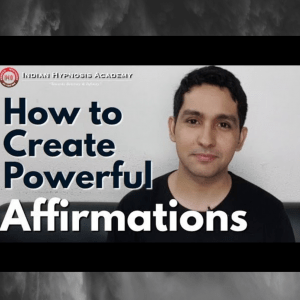Sleep is a vital part of our lives, yet many struggle to achieve the restful slumber they crave. Tossing and turning through the night can leave you feeling drained and unrefreshed. If you’ve tried everything from counting sheep to melatonin supplements with little success, it might be time to explore something different: hypnosis.
This fascinating practice delves deep into your subconscious mind, unlocking new pathways toward relaxation and tranquility. Imagine drifting off each night not just peacefully but effortlessly. With the right approach, hypnosis could be your ticket to sweet dreams and rejuvenating sleep.
In this post, we’ll uncover how hypnosis works in tandem with sleep cycles, its benefits for rest improvement, types of hypnotherapy available, and practical tips for integrating good sleep habits into your routine. Embrace this journey towards better nights filled with restorative Z’s!
What is Hypnosis and How Does it Work?
Hypnosis is a state of focused attention and heightened suggestibility. It often resembles daydreaming, where the mind becomes more open to new ideas and perspectives. Contrary to popular belief, it doesn’t involve losing control or being manipulated by another person.
During hypnosis, a trained hypnotherapist guides you into this altered state through verbal cues and relaxation techniques. Your conscious mind quiets down while your subconscious takes center stage. This allows for deep exploration of thoughts and feelings that might be affecting your sleep.
By tapping into this deeper mental layer, individuals can address anxiety, stress, or negative thought patterns that disrupt restful sleep. The process fosters an environment for positive suggestions aimed at improving overall well-being and enhancing sleep quality. It’s not magic; it’s science working in harmony with the intricate workings of the human brain.
The Connection Between Hypnosis and Sleep
Hypnosis and sleep share a fascinating connection that many may overlook. Both states involve altered consciousness, where the mind becomes more receptive to suggestions.
During hypnosis, individuals enter a state of deep relaxation. This relaxed state is similar to the moments just before falling asleep. In this way, hypnosis can help ease anxiety and stress that often disrupts sleep patterns.
Research shows that hypnotherapy can enhance the quality of REM sleep. By tapping into subconscious thoughts, it helps address underlying issues affecting rest.
Moreover, hypnotic techniques encourage healthier bedtime routines. These routines foster an environment conducive to restorative sleep.
Individuals experiencing insomnia or restless nights might find relief through this practice. The gentle guidance provided during sessions helps retrain negative thought patterns surrounding sleep.
Benefits of Using Hypnosis for Sleep Improvement
Hypnosis opens a pathway to deeper relaxation. This state of focused attention allows your mind to unwind, making it easier to drift into sleep.
Many individuals report falling asleep faster after engaging in hypnotherapy sessions. The calming techniques used can help reduce the racing thoughts that often keep people awake at night.
Reducing anxiety is another significant benefit. Hypnosis guides you through mental imagery and positive suggestions, helping alleviate stress and creating a serene mental environment for rest.
Additionally, hypnosis may improve the overall quality of sleep. It enhances not just how quickly you fall asleep but also how restorative that sleep feels when you wake up.
People have found fewer nighttime awakenings with regular practice. A consistent routine helps train the brain to associate these techniques with restful slumber, improving long-term sleep patterns significantly.
Types of Hypnotherapy for Better Sleep
There are several types of hypnotherapy that can aid in improving sleep quality. Each approach targets different aspects of your sleeping challenges.
One popular method is **progressive relaxation**, which guides you to systematically relax each muscle group. This technique helps release tension, making it easier to drift into a peaceful slumber.
Another effective option is **suggestion therapy**. Here, the therapist offers tailored suggestions during hypnosis aimed at reinforcing positive sleep patterns and encouraging restful thoughts.
**Cognitive-behavioral hypnotherapy** combines traditional CBT techniques with hypnosis. It addresses negative thought patterns that disrupt sleep while promoting healthier behaviors around bedtime.
There’s **self-hypnosis**, allowing individuals to practice techniques independently at home. This empowers you with tools for relaxation and focus when it’s time for bed.
These varied approaches provide multiple pathways towards achieving better sleep through the power of the mind.
Preparing for a Hypnotherapy Session
Preparing for a hypnotherapy session involves creating an environment that promotes relaxation. Find a quiet space where you feel comfortable and free from distractions. This could be your bedroom or a cozy corner in your home.
Consider what you hope to achieve through the session. Setting clear intentions helps guide the process, whether it’s overcoming insomnia or reducing anxiety related to sleep.
Dress comfortably, as physical comfort can enhance your experience. Loose-fitting clothing will help you relax more easily during the session.
It might also be beneficial to jot down any thoughts or feelings about sleep issues beforehand. This clarity will allow you to communicate better with your therapist and focus on specific areas of concern.
Approach the session with an open mind. Trusting the process is key to maximizing its benefits and uncovering deeper layers of relaxation within yourself.
Tips for Maintaining Good Sleep Habits
Creating a sleep-friendly environment is crucial. Keep your bedroom dark, quiet, and cool. Consider blackout curtains or white noise machines if needed.
Establishing a consistent sleep schedule can make all the difference. Go to bed and wake up at the same time every day, even on weekends. This helps regulate your body’s internal clock.
Limit screen time before bed. The blue light from devices can interfere with melatonin production, making it harder to fall asleep. Try reading a book or practicing relaxation techniques instead.
Mind what you consume in the evening. Avoid heavy meals, caffeine, and alcohol close to bedtime as they may disrupt your rest.
Incorporating regular physical activity into your routine can improve sleep quality too. Just be mindful of exercising too late in the day; aim for earlier sessions instead.
Incorporate winding down rituals that signal it’s time for bed—gentle stretches or meditation work wonders for many people.
Conclusion: Embracing the Power of Hypnosis for Restful Nights
The power of hypnosis offers a unique approach to achieving restful nights. It taps into the subconscious mind, allowing individuals to address the root causes of their sleep issues. By embracing hypnotherapy, many have found relief from insomnia and other disturbances that interrupt their slumber.
This technique not only promotes relaxation but also enhances overall well-being. As you explore different types of hypnotherapy tailored for sleep improvement, remember that preparation is key. Setting a comfortable environment and maintaining good sleep habits will further support your journey toward better rest.
With dedication and an open mind, hypnosis can become an essential part of your nightly routine. Embracing this method can lead to more peaceful evenings and rejuvenating mornings. Sweet dreams await those who are ready to unlock the full potential of their minds through hypnosis.




